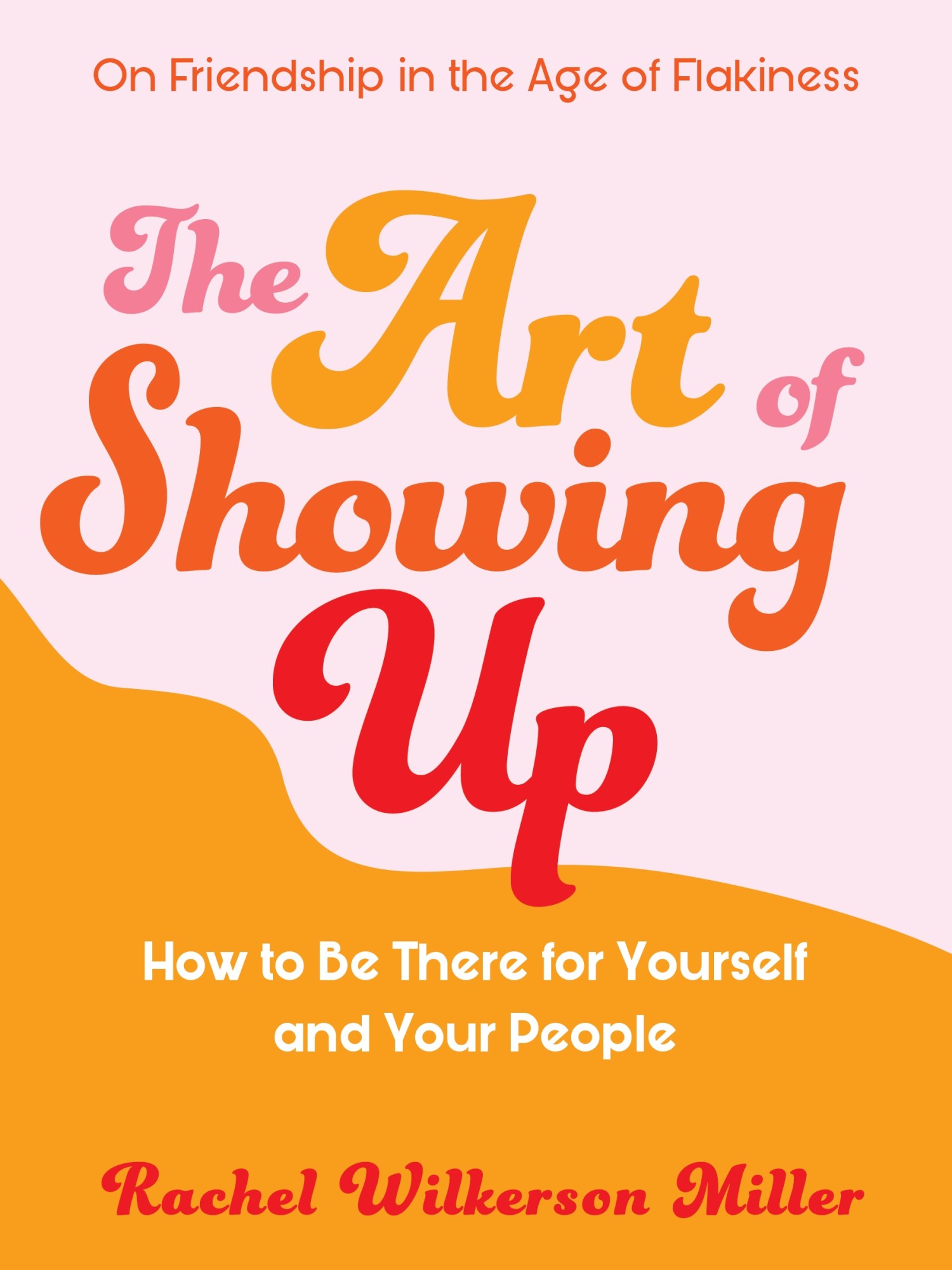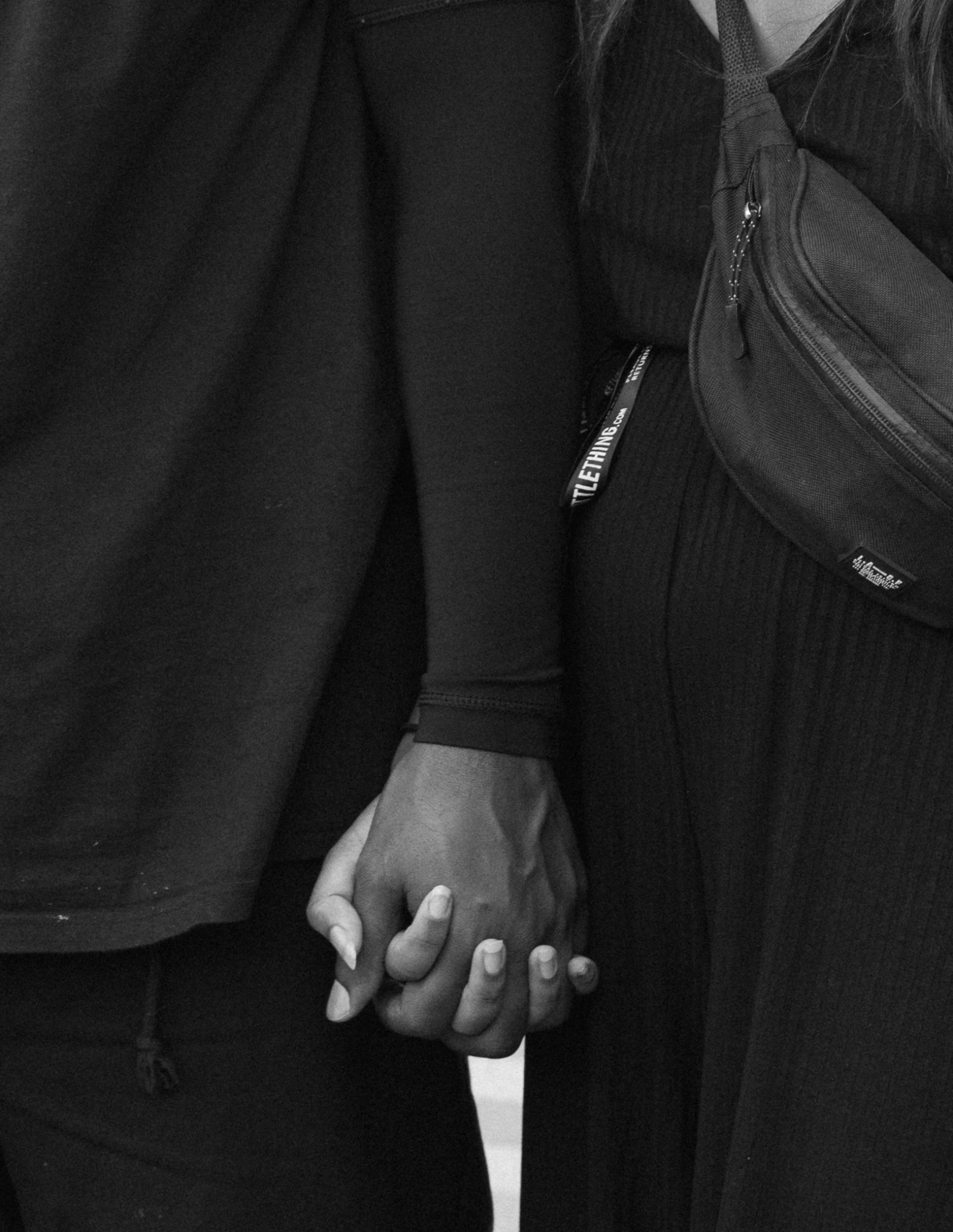What does it mean to show up, for both yourself and for the people you love? In her new book, “The Art of Showing Up”, author Rachel Wilkerson Miller breaks it down like this: “Showing up is what turns the people you know into your people. It’s at the core of creating and maintaining strong, meaningful bonds with friends, family, coworkers, and internet pals. Showing up is the act of bearing witness to people’s joy, pain, and true selves; validating their experiences; easing their load; and communicating that they are not alone in this life.”
The book is a full exploration of that concept, so prescient and necessary in our current times but also a timeless reminder of the importance of taking time for yourself, educating yourself, being kind to yourself and others, and setting boundaries. In this extract, Rachel explores what it means to be an ally, and how you can protect your own mental health while helping others.

An ally is a person who stands with or advocates for individuals and groups that they are not personally a part of. You might have heard the term in the context of race, gender, and/or sexuality, but it applies to a lot of other circumstances as well. Showing up is about showing up for everyone, especially people who have less privilege and power than you do. Here are some tips to help you get started.
Actually see people’s full identity.
Believing everyone is equal and deserving of love, support, and happiness is a good thing, but saying “I didn’t even realize you were [identity]” or “I don’t see color” communicates that these differences don’t matter. What you probably mean is it shouldn’t matter. But here in reality, it does, and it’s important to acknowledge that.
Instead of expecting others to educate you, educate yourself.
We are so blessed to live in a time when Google exists!
Listen.
When a person from a marginalized group is talking, it’s a good time to STFU. But also: Listen to people from different groups or backgrounds regularly. Look at the authors you’re reading, the influencers you follow, the podcasts you listen to the most; do they all look/sound/seem alike in key ways? And seek out a broad range of voices within these groups (because all of the people of a certain background don’t necessarily share the same views).
Shut down shitty jokes and comments.
My two favorite responses for these moments come from Alison Green of Ask a Manager: “I hope you aren’t saying that because you think I/we agree with you” and “I hope you don’t mean that like it sounds.” Elegant, direct, effective.
Hand over the mic.
Sometimes speaking up on behalf of someone is the work; other times, you should seek to amplify the voices of people whose lived experiences are being discussed. If you’re not sure, ask what they’d prefer. You can also apply ring theory here—dump your thoughts and feelings out to the people who are not marginalized versus in to the people at the center of the ring in a given situation.
Let people label themselves, reclaim slurs or insults related to their identity, and/or make jokes about their identity.
Not all words are ours to use, not all jokes are ours to make, and the “But [someone else] said it!!!” argument is intellectually dishonest. The appropriateness of certain words, nicknames, and jokes is dependent on the identity of the speaker and their relationship to the subject matter. This isn’t complicated or confusing; if you called your teachers Mr. or Mrs. instead of using their first names or calling them “Mom” and “Dad,” then you already understand this.
Avoid bombarding people with upsetting articles/news that relate to their identity.
Here’s what I mean: I, a woman, read and share articles about sexism and violence against women fairly frequently. Sometimes my male friends will come across an article about a really horrible incident of sexism or violence against women and think, “I should send that to Rachel!” Which I get! It seems like the sort of thing I’d be interested in. But sometimes it’s really jarring or triggering or I need a break from the terrible news cycle. So it’s wise to be gentle and thoughtful when sharing this kind of content.
When you need help or support, lean on other allies.
There will be times when you as an ally might feel overwhelmed, confused, or even defensive, and you’ll need to work through or process those feelings with someone. A person in the marginalized group affected isn’t the right audience for this. That’s when it’s helpful to turn to Google or talk to your fellow allies.

Extracted from The Art of Showing Up by Rachel Wilkerson Miller (Orion Spring, £14.99), available now.
